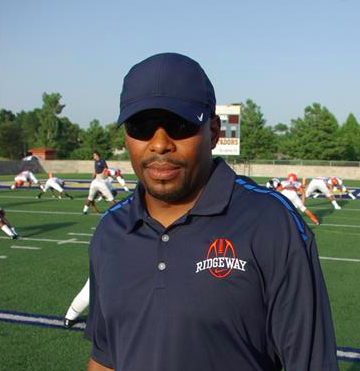The video of former Baltimore Ravens running back Ray Rice knocking out his soon-to-be wife in an elevator has forever changed the rules in the NFL as it relates to domestic violence. Rice was suspended indefinitely by the league. His was just one of several incidents in the NFL recently.
The prevailing thought is that the NFL was not prepared to deal with these recent crises and, as a result, NFL Commissioner Roger Goodell’s reputation and the league’s image have suffered severely.

Duron Sutton
Other major sports leagues have taken notice of what is going on with the NFL and are trying to be proactive in dealing with domestic violence. NBA Commissioner Adam Silver said he is looking at changing his league’s policy on domestic violence. Ditto for Commissioner Bud Selig and Major League Baseball.
College programs are wrestling with their own issues as it relates to DV. For example, Georgia football coach Mark Richt dismissed defensive tackle Jonathan Taylor over the summer after Taylor was arrested for allegedly choking his girlfriend. Tennessee Vols’ freshman running back Treyvon Paulk was kicked off the team after being accused of hitting his girlfriend, although she did not press charges.
High Schools coaches in the Shelby-Metro area are also now on high alert and for good reason.
A 2011 nationwide survey conducted by the Center for Disease Control and Prevention found 9.4 percent of high school students reported being hit or harmed by their boyfriend or girlfriend within a year of the survey. Their research found that 1 in 5 women, who had experienced sexual or physical violence by a partner, first experienced some form of violence from a dating partner between the age of 11 and 17.
According to the Tennessee Bureau of Investigations, 247,069 incidents were reported across the state between 2011-2013. The City of Memphis reported 59,000 cases in 2012 alone. Juveniles accounted for 10 percent of the domestic violence victims in the state. Boyfriend/girlfriend relationships were noted in 43 percent of all reports, regardless of age.
Several area high school coaches are aware of these disheartening numbers which is why some coaches have used the Ray Rice incident as an opportunity to teach beyond the x’s and o’s in their respective sport. Although situations they deal with may not always be technically considered domestic violence by definition, they feel it is close enough.
Ridgeway football coach Duron Sutton addressed his team after watching the Rice video and reiterated a message he had shared with them in the past. “You’re an athlete,” he told them. “If you’re in a situation like that, run. They can’t outrun you. Your little push or shove could be worse than you think.”
Sutton, who also coached at Kingsbury as a head coach, and Craigmont as an assistant, recalled having to talk to a former player about being too aggressive with a girl. “I dealt with a situation with a guy holding a girl’s arm, holding her against a wall. Fortunately it did not escalate into anything more but I got on him hard because you can not put yourself in a situation where you are using physical force.”
“I have two daughters,” Sutton continued, “It’s not right for anyone to put their hands on my child or any child.”

Chris Michael
Yet domestic violence is a reality for many according to Millington Central football Coach Chris Michael. He believes several teens witness it in their households while growing up. Some have seen it while others have been victims of it. He says it is important for people in his position to understand they are more than just coaches. They are role models who can help counter those past volatile experiences.
“You hope you are a model of good behavior, a father figure, a good representative of what a man should be. Someone that helps combat (abusive) pasts.” said Michael.
Mitchell basketball coach Faragi Phillips can relate. Domestic violence is very personal for him. His parents are best friends and happily married now, but that was not always the case for Phillips while growing up. “I grew up in a home where my mom and dad were violent to one another,” he said. “And it motivated me to not do the same. Plus I didn’t ever want my kids to see me behave that way.”
Phillips said he not only broke the cycle of violence in his own life, but has tried to help others do the same. So when the Rice video was shown repeatedly on television and the internet, he knew he had an opening to drive home his message. He brought his team together to begin dialogue on the topic.
“I talked to them and told them it’s never ever okay to put your hands on a female,” said Phillips. “Never, even if you are pushed. It’s just never the right thing. Remove yourself from the situation. Remember Rice had a chance to leave. He didn’t have to go into the elevator with (his then fiancé).”
The message resonated with his players. Kylan Phillips, the coach’s son and Mitchell’s senior guard summarized the discussion. “As a man putting your hands on a woman is never okay. The strength of a woman doesn’t compare at all to a man’s. And there are so many consequences and trouble that could come from it.”
Sutton echoed Phillips’ thoughts. “Guys have girlfriends and they don’t always get along. I’ve been with my wife for 14 years and it’s never gotten physical despite our disagreements. You just have to agree to disagree.”
The Rice situation also offered other teaching opportunities for coaches with their players. “With so much geared toward social media, everything is magnified especially when you start to get a bit of celebrity,” noted Phillips. “And with (Mitchell) winning the state championship, my guys are more recognized in the community now. I told them people will record more video of you, take more photos, and tweet things about you.”
Michael agreed. “It’s probably something to consider in the future when it comes to off the field stuff. Awareness is always important. And it gives young people an avenue to talk a lot about how things should be handled going forward.”
As for the present, Sutton has advice for how young athletes should deal with situations to alleviate any physical confrontations. “Build your vocabulary. Let your words help make your point. Use your brains not your hands.”
